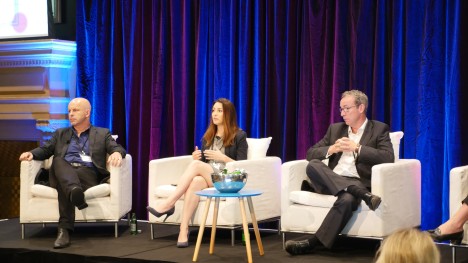TrinityP3: Incumbent agency has the ‘strongest hand in the pack’ during pitch
An incumbent agency in a pitch process is the “strongest hand in the pack” and often don’t recognise how “powerful” incumbency can be, Nathan Hodges, the general manager of TrinityP3 has told an audience in Sydney.
Speaking on a panel with a number of senior clients, at today’s CommsCon conference, Hodges, who works for one of Australia’s major pitch consultancies, said “pitches are a symptom rather than a cause”.
“And the cause of any of these things are around the pace of channel proliferation, the pace around the requirement of specialisms within rosters and within marketing departments and the fact that structures, job titles and people’s skill sets aren’t keeping up with that pace.



This is rubbish.
Look up ‘loss aversion’.
I would be interested to know the ratio of incumbents retaining following an account pitch.
Both with and without ‘pitch doctors’ being involved would be a nice filter.
Anyone?
You want beyond the remit….start by paying fairly
Also, and very seriously, i’d be really interested to know about all the ways your company goes beyond for you customers…..
What a croc.
Being the incumbent is like being the husband/wife when your partner decides they want to see other people. any agency with dignity would say, ‘well, you know what I can do, but if you want to see others, then goodbye’.
When the last time a Director of Corporate Affairs dealt directly with creative or media agencies anyway…
Utter garbage, I’ve been involved in over 20 pitches and only once did we go with the incumbent and that ended badly 6 months later.
Pitches are the opportunity for agencies to sell their expertise and capability providing all new potential agencies the licence to expand on the truth. Whereas the incumbent is stuck with telling the truth and overcoming issues that have arisen over the period of their previous work.
If you are at pitch its beyond repair and the right thing for both the agency and client is to agree to move on. Agency/client life cycle is very similar to a failed marriage – Meet, blissfully together, get married, honeymoon period, daily grind then divorce. When you get to divorce stage its time for both parties to walk away
Crikey. Did the panel hit a nerve or something? We were simply saying that the incumbent hand is usually underplayed, but when it’s done well can be powerful. Almost no-one does it well. Some of the defeatist comments on here illustrate why. Brad and Fraser (whoever you are) – incumbents seem so rarely to have the guts to walk away from a pitch. I wish they did it more, because instead they often just hang around being needy and half-arsed until they guarantee getting the boot. And Bear – loss aversion is not how you have to behave. There’s always a choice for the brave and smart.
@Nathan
“There’s always a choice for the brave and smart.” That’s meaningless rhetoric, and you know it.
Bullshit.
Anyone who has ever been involved with a pitch as an incumbent would tell you that you have roughly a 1:10 chance of retaining the business. If you want to throw time, effort and money at the situation with these odds then good luck to you. Having the incumbent involved is just to stop the client feeling guilty about the whole thing and allowing the incumbent to hold out hope so they don’t drop the ball during what can be an extensive pitch process.
My advice to an incumbent when a pitch is called put your efforts into new business not the piece that is about to walk out the door.
I have always questioned what value pitch consultancies provide. This article and the ‘brave and smart’ response have provided the answer – thanks Nathan.